What is Foundation English all about?
Students develop their literacy and numeracy skills to meet the Western Australian Standard of Education (WACE) .These standards are based on Level 3 of the Australian Core Skills Framework (ACSF) which outlines the skills required for individuals to meet the demands of everyday life and work in a knowledge-based economy. They further develop reading, oral, viewing and writing skills to meet their needs and achieve their goals. They will work with a variety of everyday and work-based texts that they will be expected to use once they leave school.
Who should select these units in Year 11?
Students who have not demonstrated the minimum standard in the literacy component of the Online Literacy and Numeracy Assessment (OLNA) are eligible to enrol in this course.
Pathway
To be an apprentice or continue in certificate courses at TAFE; be in the VET program or join the workforce. If they are still at school in Year 12 and have still not demonstrated the minimum standard of the literacy component of the Online Literacy and Numeracy Assessment (OLNA), they would continue in Units 3 and 4 of this course.
Areas of Study
UNIT 1 – FOUNDATION ENGLISH
- Comprehending the ideas and information in texts
- Responding to the ideas and information in texts
Non Print: Feature Film, Documentary, Television, Advertising and Still Images
Print: Short Story, Plays, Novels, Newspaper and Magazine
UNIT 2 – FOUNDATION ENGLISH
- Interpreting ideas in a range of texts and contexts
- Interpreting arguments in a range of texts and contexts
Non Print: Feature Film, Documentary, Television, Advertising and Still Images
Print: Short Story, Plays, Novels, Newspaper and Magazine
To provide for different learning styles a variety of assessment tasks are used. For each course of study tasks are selected from:
- Fiction: novels, short stories, fairy tales, song lyrics and myths and legends
- Non –fiction: news reports, essays and documentaries
- Media texts: newspaper articles, films and television programs
- Everyday texts : computer games, comic books, instructions, diagrams and blogs
- Workplace texts; reports, minutes, memos and letters.
What is Foundation English all about?
Foundation courses are designed for students who have not demonstrated the Western Australian Certificate of Education (WACE) standard of numeracy and Standard Australian English (SAE) literacy skills. These standards are based on Level 3 of the Australian Core Skills Framework (ACSF) which outlines the skills required for individuals to meet the demands of everyday life and work in a knowledge-based economy. This course provides support for the development of functional literacy skills essential for students to meet the WACE standard of literacy and numeracy through engagement with the ACSF Level 3 reading, writing, oral communication core skills.
Who should select these units in Year 12?
Students who have not yet demonstrated the minimum standard in the literacy component of the Online Literacy and Numeracy Assessment (OLNA) must enrol in this course.
Pathway
This course provides the opportunity for students to prepare for post-school options of employment and further training.
Areas of Study
UNIT 3 AND 4 – FOUNDATION ENGLISH
By the end of these Units, students will:
- develop skills in functional literacy, including appropriate spelling, punctuation and grammar
- develop skills in reading (understanding, comprehending, interpreting, analysing) texts for work, learning, community and/or everyday personal contexts
- develop skills in producing (constructing, creating, writing) texts for work, learning, community and/or everyday personal contexts
- develop skills in speaking and listening for work, learning, community and everyday personal contexts.
Non-print: Feature Film, Television, Pod-cast, Advertising, and Still Images
Print: Short Story, Novels, Newspaper and Magazine Articles
To provide for different learning styles a variety of assessment tasks are used. For each course of study tasks are selected from:
- Fiction: novels, short stories, fairy tales, song lyrics and myths and legends
- Non –fiction: news reports, essays and documentaries
- Media texts: newspaper articles, films and television programs
- Everyday texts : computer games, comic books, instructions, diagrams and blogs
- Workplace texts; reports, minutes, memos and letters

